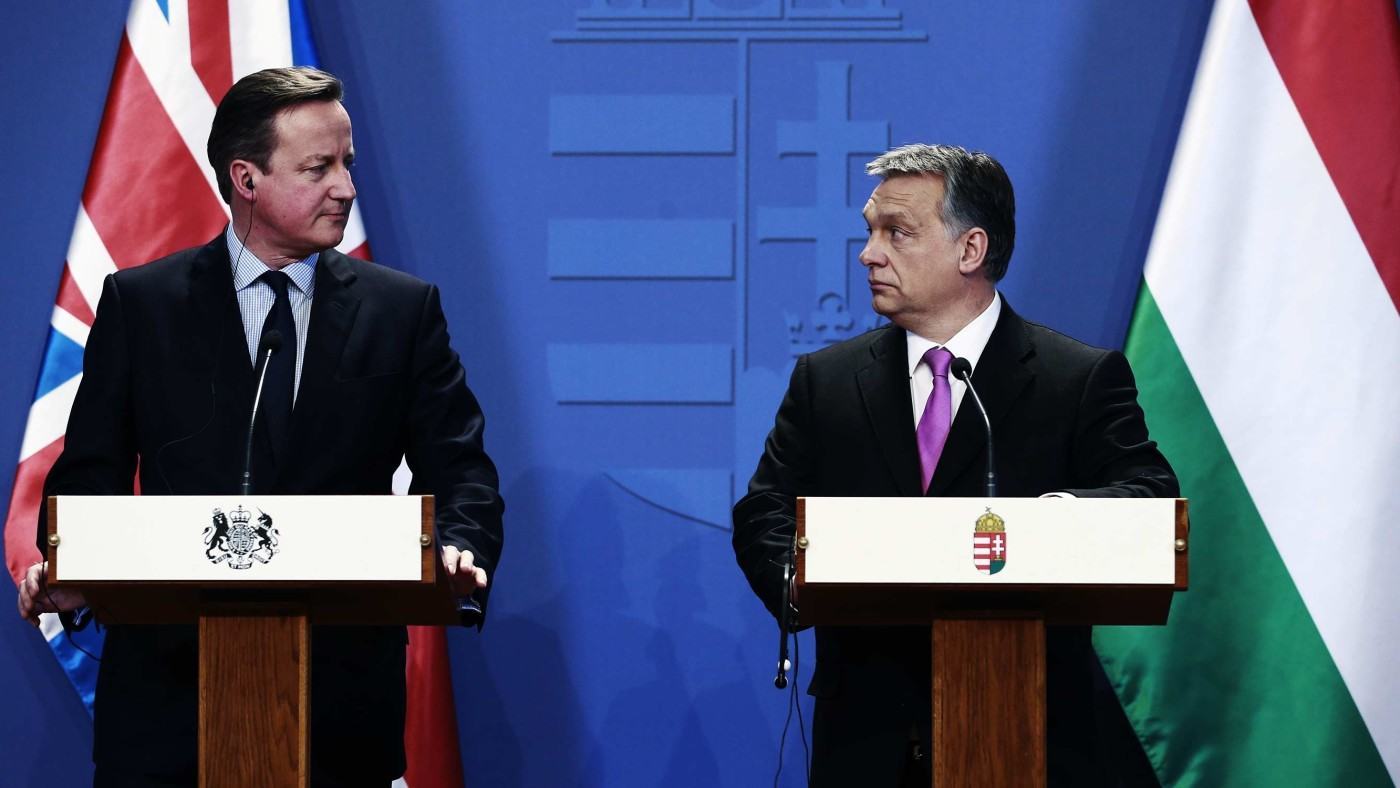David Cameron’s recent visit to Hungary to seek allies for his EU negotiations made perfect sense. Central Europe (CE), and especially Hungary and Poland, have often been at odds with the mighty EU bureaucracy, which does not shy away from interfering with their sovereignty. They support wholeheartedly the UK’s drive for more sovereignty and fervently want to put an end to “ever closer” union and to claw back powers from the unaccountable Brussels bureaucracy. After all, Central European citizens never meant to join the EU just to have another colonial master taking over from the Soviet Union.
The most contentious issue is immigration. Mr Cameron is proposing to cut back the number of CE nationals working in the UK by depriving them of in-work benefits for four years, contravening the EU’s principle of nondiscrimination. I disagree with the prevailing practice of assessing the effect of immigration purely in terms of fiscal balance, but since the general debate is focused on this aspect, let’s quote a 2014 study investigating just that: “…when considering the resident immigrant population in each year from 1995 to 2011, immigrants from the European Economic Area (EEA) have made a positive fiscal contribution. …Notable is the strong positive contribution made by immigrants from countries that joined the EU in 2004.” [Christian Dustmann and Tommaso Frattini: The fiscal effects of immigration to the UK, The Economic Journal, 2014.]
Understandably, Central European nationals are wondering why exactly they are being identified as drags on the UK’s welfare system.
In November last year, Mr. Cameron wrote this about immigration:
“But we do want to find arrangements to allow a Member State like the UK to restore a sense of fairness to our immigration system and to reduce the current very high level of population flows from within the EU into the UK. These have been unplanned and are much higher than forecast – far higher than anything the EU’s founding fathers ever envisaged.”
Mr. Cameron’s key point is that the present level of intra-EU population flows was unplanned and unforeseen. This is also true in a wider context. The whole EU enterprise in its current form was unintended by EU citizens and its impact is unpredictable. The Euro was certainly an experiment, whose disastrous consequences were unforeseen.
The same is true about enlargement. Central European accession was premature, the power relations in the negotiations asymmetric, and accession conditions dictated rather than agreed upon. Denying them the chance to put down the foundations of sustainable long-term development, Central European countries were pressed to change their economies in the fastest and most radical way while preventing them from becoming competitors. It means that today they are a periphery dependent on foreign capital and EU transfers and constrained by EU rules to remain so.
The issue of agricultural land is a good example. While the old member states enjoy a degree of sovereignty over their agricultural land, Central Europe’s land is fully subjected to the rule of free movement of capital. At the time of accession, wages and land prices were a fraction of those in Western Europe. To allow time to “converge”, countries were given a transition period before opening their land market to foreign capital. On expiry of the moratorium, they had to open up even though the expected convergence had not materialised either in terms of purchasing power or land prices. The result is that capital-rich Western investors buy up excellent cheap farmland and capital-starved domestic farmers cannot compete with them. Not for the first time in history, farmers deprived of land are forced to seek employment elsewhere. Another instance of unplanned and unforeseen consequences.
Most nationals working abroad are not in search of an easy life creaming off foreign welfare systems. Almost six percent of Hungary’s and Poland’s population have left home because in their countries it is hard to make a living at all. This is why immigration is a fraught issue for governments. Unable to offer a reasonable perspective to their citizens, they do benefit from a natural reduction in unemployment and the billions of remittance sent home.
Mr. Cameron’s conclusion is eminently reasonable. “We need to ensure that when new countries are admitted to the EU in the future, free movement will not apply to those new members until their economies have converged much more closely with existing Member States.” It is also eminently reasonable for countries to start correcting the structural problems of their imbalanced economies. The intra-EU immigration problem must be treated at the root cause by allowing Central European countries to steer their economies towards long-term sustainable development. For example, free flow of capital and foreign investment in farmland should only be allowed when the close convergence mentioned by Mr. Cameron has happened.
The UK seeks to change her EU membership terms because she cannot live with the unplanned and unforeseen consequences of the current ones. It is only fair that Central Europeans should have the right to do the same. This is the shared interest. The UK and Central Europe should fully support each other in their endeavour to renegotiate their membership terms. Failing to do so both would miss a historic opportunity. Then it will be time for Central Europe to have its own referendum on EU membership. There can be little doubt about the outcome.


